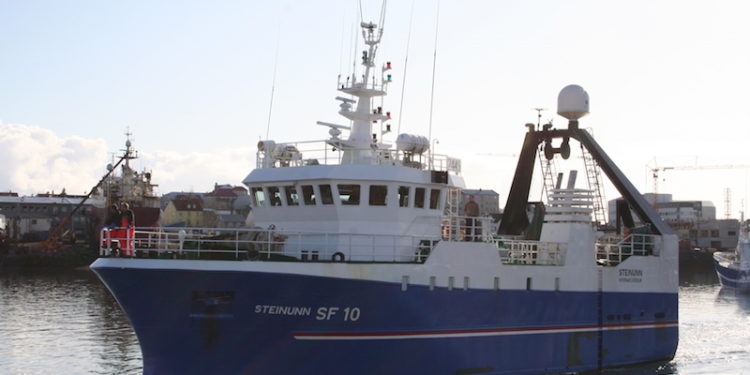Members of Iceland’s seamen’s unions last night accepted the agreements reached with owners’ federation SFS in a ballot held around the country.
Votes were counted at the state arbitrator’s offices and a majority of those who took part in the ballot voted to accept terms, ending the ten-week strike.
The vote in favour was narrow, with 52.40% of those voting to accept and 46.90% voting to reject terms offered.
Ships’ officers and engineers’ unions had already agreed terms, leaving only crews out on strike as they twice voted down terms that had been agreed, resulting in the longest ever seamen’s strike in Iceland.
Some crews had already been given notice to be on board on Sunday night, and much of the fleet was ready to sail as soon as the final count had been confirmed.
The decision by the Ministry of Fisheries last week to boost the capelin quota to 299,000 tonnes undoubtedly played a part in adding urgency to the negotiations, with the risk of losing out on the valuable capelin roe fishery that always takes place at the tail end of the winter capelin season in the weeks before the fish migrate westwards and out of range.
In addition, the threat of legislation forcing the issue and outlawing the strike had become a real possibility, in which case crews would have been back to sea without a valid agreement with the owners and little prospect of the two sides coming together to renew negotiations in the foreseeable future.
The end of the strike is a relief to fishworkers who have either been on basic pay or have been made redundant to seek other work or unemployment benefits, processors who have been unable to fulfil contracts with overseas customers, as well as the many service companies that have been hit hard by the fleet being tied up since mid-December.
The end of the strike is also good news for UK ports such as Grimsby that rely heavily on imported fish, and where there have already been job losses as the supply of fresh fish from Iceland came to an end.









